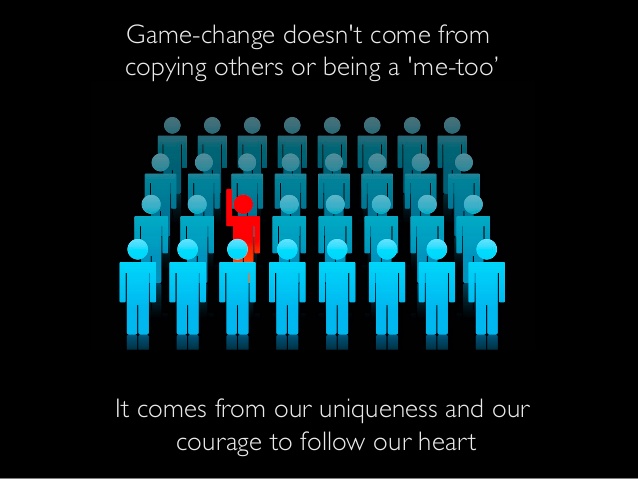REVEALING STATISTICS
According to the American Bible Societies 2016 research, 88% of Americans own a Bible and 80% view it as sacred. Here is where it gets interesting; 57% say they read it less than four times per year.[i] That would be the majority of us! I receive a great many surprising looks, some sheepish, whenever I share this statistic.
One of the reasons behind this eye opening figure is that many have a difficult time relating to much of the Bible. The events which are recorded transpired long ago in cultures foreign to most of us living in the west. Others see the Bible as a revered manuscript entrusted to the care of a priestly sect of professional ministers whose job it is to handle holy things. They are the “keepers of The Book”. They are viewed by many as the servants of God who speak on His behalf through interpreting His written word for the rest of us. For centuries, it was common for religious groups to require a minister to be present when reading or discussing the Bible. Their being the mouthpiece of God, elevated them in our minds to elite status and we have deferred to their perspective of how and what God is doing on the earth. They interpret the bible for us and shape the paradigms through which we gauge the world around us. They tell us where to look and how to interact with what we observe. Based on their view of God and what they think they understand about Him, they often write books with processes and steps for us to undertake in order to secure God’s blessing in our personal lives. We are taught good things come to good people and bad things happen to bad people. Our spiritual journey can at times be reduced to a series of religious rituals whereby our adherence to them results in God’s favor. When events don’t unfold according to plan or formula, we find ourselves in what is known as a crisis of faith. At that point we are forced to reevaluate what we think we know about God. Unexpected outcomes force us back to the drawing board.
THE GREAT ABDICATION
What is clear about the 57% statistic, is very few of us actually read the Bible. When we do pick it up it is to read a few books such as the Gospel’s or Psalms. For the majority of us, what we think we know and how we view it has been prepackaged for us by those in professional ministry.
In some regards it is understandable because the Bible can be intimidating to read. Given the last entry to the collection was written nearly 2,000 years ago and all of the events take place in foreign countries, it can be hard to grasp the historical and cultural nuances of the various stories. For most there is not enough time or it is too overwhelming to do the research. We therefore abdicate or defer to those professional religious scholars who have time and get paid to do such things. They tell us how to think and what to see and we in turn mimic it to others. This is particularly troubling given we have no real firsthand knowledge as to whether they are accurate in their paradigms. For many, assumptions are the platform on which they stand to both view the world and interpret the events transpiring there. We often see the world through glasses someone else has crafted for us.
For a moment I’m going to put on my social psychology hat. Decades of research has shown us how predictable human behavior can be. We perceive ourselves as being independent thinkers but that isn’t really the case. We humans have deep seated needs to belong, be seen as significant, and feel safe. To get those needs met we congregate in manageable groups. These groups or sub-cultures are highly influential on both our thinking and actions. Our continual acceptance and stature within a sub-culture is predicated on our having the same perspectives as those leading the group. Within the religious world this would be the Priest, Rabbi or Pastor. What develops within these sub-cultures are echo-chambers of group think whereby we all think and say the same thing. We have the identical perspective and are self-affirming in our rightness. This is known as being “normal”.
THE TROUBLE WITH NORMAL
Herein lies the problem. A great deal of innovation which has moved humanity forward has come through those people who were originally rejected by their sub-culture. In fact, it is often people who live on the social fringe who challenge conventional norms. It is that “odd person” the group once shunned who makes the astounding discoveries. The reason for this is they have less social capital to lose. Most of us are so heavily invested in our relationships the cost of independent thinking is too high. If we do entertain independent thoughts, we tend to keep them to ourselves as the risk of loss is too much.
Where things become complicated is when someone within the group suddenly begins to see things differently and begins to raise questions. If they continue to ask questions they will soon be labeled a malcontent and rebellious. Their presence creates fear in some and anger in others. In an effort to calm the group or eliminate the perceived threat to their paradigm, the leader will feel responsible for exorcising the problem and maintaining calm.
WHEN IDEAL COLLIDES WITH THE REAL
While the Gallup poll says that 40% of Americans attend church on Sunday, according to David Olsen of the American Church Research Project it’s more likely nearer to 20%.[ii] Once again we are faced with a rather surprising statistic, especially in light of the fact many perceive the US to be a “Christian” nation. Where this is also revealing is behind this statistic we see that for most, their view of the bible, its characters and the stories surrounding them are left over from their childhood. It was felt cloth flannel graphs or cartoons on VCR’s which formed our perspectives of those in the Bible. The characters were innocent and God miraculously always delivered them from impending doom. This was the idyllic world we thought we were going to grow up in. It was going to be heaven on earth…and then we grew up. Life didn’t turn out that way and in the confusion and disillusionment many never went back to church. They could not reconcile the two worlds. I have had many tell me in hindsight growing up in church was like a religious version of going to Disneyland. It is a key factor to consider on why institutional religion has lost the millennial generation en masse.
SANITIZED JESUS
For most of us our sanitized view of Jesus is he was the popular leader we’d all like to be. He was certainly a hero but not to those who had something to lose. Jesus was a friend of sinners and those who followed him were primarily the disenfranchised and hopeless. Contrary to the way he is sometimes portrayed, Jesus was not a cool-cat with the “in” crowd. He himself lived under the cloud of scandal with everyone aware of his mother being pregnant but unwed. In Jewish terms he was a mamzer or a bastard child. This classification would hang over his head all through adulthood. The religious elite viewed him as illegitimate and disqualified from any form of ministry. He was an insult to everything they stood for as he was impure. While Jesus may be the “norm’ in our modern Christian world he was abnormal to the Jewish leadership of his time. He forgave adulterers loved his enemies and had the audacity to heal someone on the Sabbath. He was a threat to the system and threw verbal bombs into the bastions of group think. For those “experts” of the Holy Scriptures with their neat and tidy paradigms as to what the mission of the Messiah was, he was anything but! They were so confident in what they thought they knew, they set out on a mission to eliminate this false Messiah who was blaspheming G-d.
WHEN SEEING IS NOT SEEING
A question I often ask myself…how vulnerable am I to group think? Am I simply an echo of other voices? Am I one of the religious elite who assumes I know, or am I like Anna and Simeon (Luke 2) when they recognized at the temple, in the innocent cry of a baby, the purpose of God. How many neat and tidy preformed paradigms do I have about who and how God uses people? Does what I think I know prevent me from seeing what I don’t know? I’m sure some of you have seen the short video below. If not, please watch this as it will illustrate my point in the most surprising way.
The Awareness Test:
I use this video in virtually all of my “Perspectives” seminars. I have yet to have anyone see the moon-walking bear on their first view. Why is that? We are so preoccupied doing exactly what we’ve been told and following exactly what we are told to follow, we miss the obvious. Not only that; we are so proud of ourselves for being right with our counting, our head swells up with pride because being right is a huge value in our culture. We feel good about ourselves and we get achievement rewards for being right. We get promoted for being right. The Christian community is saturated with a being right culture. To be wrong can have deadly consequences. Jesus was the moon-walking bear of his culture. While the whole of society was preoccupied with being and doing right, Jesus moon-walked right through the middle of them.
HMM…MAYBE WE NEED TO RETHINK THIS
Not long ago I had a rather engaging conversation with the former head of Human Resources for one of the largest corporations in the world. He is a man who has been on a spiritual journey for many years, and a faithful church attendee and board member in his church. He like most everyone else had a paradigm presented to him by church leaders how God’s primary vehicles for impacting humanity are those in professional ministry. He is not unusual in that regard as this is the default setting for most within the Christian community. When God is going to do something we are taught He speaks to and through those from the ministry sector. These are His holy servants. When the stories of people in the bible, from Genesis to Revelation are presented to us, they are done so in a way which presupposes these people were in some form of ministry. I can’t tell you how many sermons I have sat through were some Old Testament person is being presented as a type of Jesus!
As we continued to dialogue about what Jesus said, did and tried to do I posed to him a thought provoking question. “If you lived in the 1st century and your boss called you into a meeting and said to you ‘I want to start a religious movement which will impact the whole of the world. I need you to put together a management team’, who would you hire?” He was so stunned by the question he leaned far back in his chair. After pondering the question for a minute he leaned forward and said “That’s a brilliant question no one has ever posed to me before…wow!”. He thought about it a little longer and told me he’d most definitely go after the best talent. I responded with a “me too!” I then asked him what that would look like? He thought about it more and said “Well, we’d need the best scholars, theologians to get it right and preachers and teachers to get the message out.” I agreed with him saying “That is the way I was trained to think as well.” I followed up with another question “Where would we find these guys?” Well that question stumped him as he wasn’t sure. I jumped in at that point suggesting that really with the epicenter of religious thought being Jerusalem, that would be our best bet to find talent. He concurred as it was where the best schools were located. After we had come up with our recruiting strategy I asked him one further question “If this is the case, can you explain to me why Jesus chose a group of small business owners and a government employee, none of which is from Jerusalem other than possibly Judas?” At that point he about fell out of his chair!
THE MUCH BIGGER PICTURE
Is it possible Jesus’ focus was not just on starting an institutional religious movement? What if his message was transcendent and transformative and his focus was on people from every walk of life being a light right where they live and work? What if God (the moon-walking bear) is at work right in front of us working through people we’d least expect? Jesus was not intimidated by secular society nor did he avoid it. Contrary to many people’s assumptions, Jesus lived in a multicultural world surrounded by pagan temples, Roman bathhouses and people with very different worldviews. There was a Roman coliseum just down the road from him. Much to the horror of religious leaders, daily Jesus engaged people from every walk of life in stimulating conversation and healed them with compassion. While we get caught up in our sub-cultures, worrying about who is leading us and the building we are going to meet in, God is at work outside these echo chambers of thought, touching the world through broken and dysfunctional people who understand the grace of God.
References:
[i] http://religionnews.com/2013/04/04/poll-americans-love-the-bible-but-dont-read-it-much/
[ii] http://www.churchleaders.com/pastors/pastor-articles/139575-7-startling-facts-an-up-close-look-at-church-attendance-in-america.html








Interesting. Makes me rethink my own assumptions.
Sometimes our paradigms are so entrenched we don’t realize they are assumptions! Disillusionment is the painful result of discovering false assumptions.
When false perceptions become reality, it can be dangerous and difficult to shater for the truth.